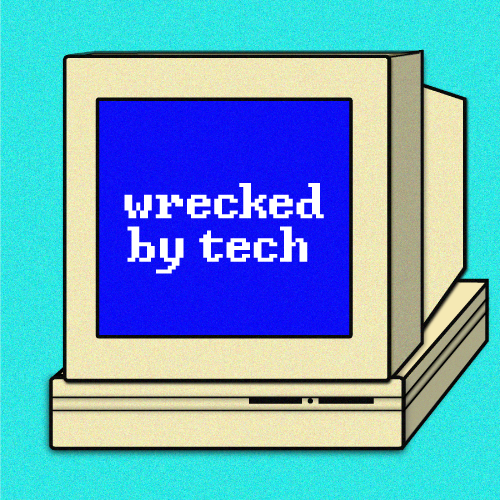-ate properly. This week's post is a request from a classmate. Thanks for the idea, Kaylene, and I hope this helps.
I love hyphens. I think it's because it's a distant relative of my favourite punctuation, the em dash (—). They're both excellent ways to connect words. The problem, as with any punctuation, is using them properly.
How do I use a hyphen?
Hyphens are generally used for:
- compound words, which is probably the most common use;
- prefixes to other words, which is becoming less and less common;
- word breaks, which are only relevant if you're designing/printing/laying something out; and
- words within words, which often involve profanity.
Compound words
Compound words are where you'll probably see them the most. Here's the rule: not in nouns—unless they come from verbs. Not in verbs—unless they come from nouns.
Hold on, what?
Don't use
Okay, let's see an example. As a thing, it's a fact check.
Even after Clark assured me he wasn't Superman, I still did a fact check to be sure.
So when it's a noun—a person, place, or thing—no hyphen. There's an exception, but I'll get to that later.
Do use
Use a hyphen with verbs. The thing itself is a fact check, but you fact-check your work.
I had a feeling Clark was full of shit, so I fact-checked him.
You also want to use a hyphen with compound adjectives, especially if the meaning could be muddled if you didn't.
Can you imagine a drug-addicted Superman? I hope crack doesn't work on him.
See how drug and addicted had a hyphen? That's because if you were to write:
Can you imagine a drug addicted Superman?
It's not as clear that way. The two words aren't connected, so it kind of looks like two separate sentences: Can you imagine a drug and addicted Superman. The latter of those two sentences is a fragment, and you probably don't want to use those.
So, any time you have a descriptive word related to another word, you use a hyphen. It's the same reason you do it with numbers: it's more clear that way.
For example, if I said "This weekend, I'm watching fifty two hour movies," that begs a lot of questions. Do I mean I'll be watching fifty movies, all two hours long? Do I mean I'll be watching a series of movies that are fifty-two hours long? The hyphen, in this case, is the difference between something extravagant (watching 50 two-hour movies) and something insane (watching 52-hour movies).
Plus, is there even such thing as a 52-hour movie? I hope not. Nothing is that entertaining.
Exception
Remember that exception I mentioned? Here it is: you shouldn't use a hyphen in a noun unless it came from a compound verb. Oh God. Now everyone is confused.
Let's use build-up as an example. As a verb, things build up.
I'm not going to accuse Clark again until more evidence builds up.
As a noun—if you're using it as a thing, not an action—it's got a hyphen.
I think I'll expose Clark to the world. There's been a lot of build-up, but I'm finally doing it.
The origin of the word matters. If you're using a noun as a verb, use a hyphen. If you're using a verb as a noun, use a hyphen.
Jesus this language is weird.
Prefixes
Prefixes are less of an exact science than a personal preference. Lots of words used to have hyphens and don't anymore, so it's on a word-by-word basis. See what I did there? That's an adjective with multiple words, so it requires hyphens.
Anyway, back on prefixes. You used to write co-operate, because co means together and operate means work or run. That's all well and good, but co-operate is a pretty common word. The tendency with any language is to evolve over time, and the more you speak and write, the more your language changes. I guess nobody has time for hyphens any more, because now it's cooperate. Looks kinda weird to me, but hey—it's faster, right?
Word Breaks
This is probably the least common use for hyphens, unless you do a lot of layout/design/printing. When a word goes onto a different line, you use a hyphen to signify it's being broken. So:
Man, Clark is driving me insane. He really doesn't get it. I mean, come on, who would be- lieve he's not the same person as Superman? They look exactly alike. We all have eyes!
It's ugly, but it happens sometimes. There are old printer's rules about how to divide words into syllables, but some of them have changed. The most common thread is that you have to separate at consonants and vowels rather than random letters. You would never write
bel- ieve,
because it's easier to read when it's be-lieve. Somehow it requires less thinking. I don't know why, it just is.
Welcome to English.
Words within Words
This might be the most unorthodox use for hyphens, and you'll probably only use it in creative writing. When you mix words—by inserting a word into another one—you'll need to use a hyphen. If you're writing dialogue, for example, you might want to insert a swear between syllables. You know, for emphasis.
In that case, you'd spell the word unbe-fucking-lievable or un-fucking-real or in-fucking-tolerable. It depends on how you say it and where you insert the swear. And even then Microsoft Word will give you a little red underline. Like I said, you probably won't use it. But if you need to, there it is.
That's pretty much it for hyphens. And if that didn't clear things up, the Oxford Dictionary blog has a pretty good post about it in layman's terms. If you're into proper labeling and the hard-and-fast rules, they have a more in-depth version here.
